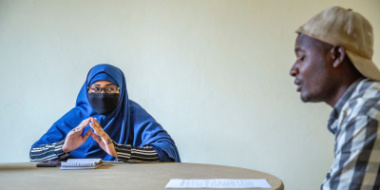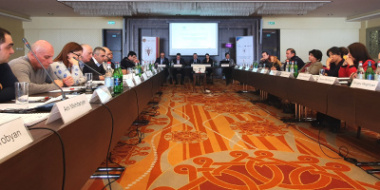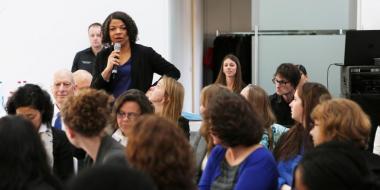Women judges in Africa join forces to combat GBV
Over 50 women judges, representing chapters of the International Association of Women Judges across the African continent, convened to discuss the critical role and contribution women justice professionals play in adjudicating cases of gender-based violence at a regional conference in Nairobi from November 29 to December 1, 2018.













